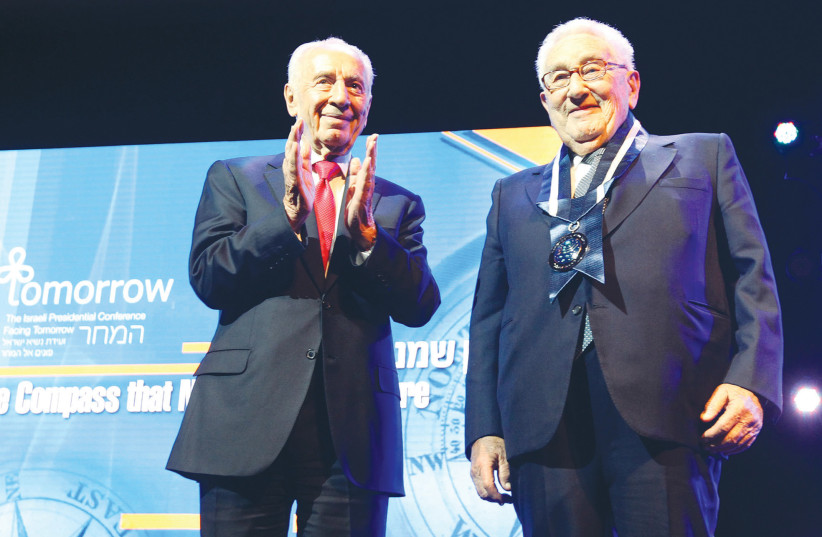On May 17, The Economist ran an article based on over eight hours of conversations it recorded with former secretary of state and national -security advisor Henry Kissinger about the war in Ukraine.
The article was entitled “For the safety of Europe, get Ukraine into NATO.” It essentially asserted that a postwar recovery in Europe would require putting Ukraine under a NATO umbrella with full security guarantees. This week the article was incorporated into the cover story of the magazine.
His latest view of Russia’s war over Ukraine contained an important shift in his approach. Previously he was not enthusiastic about having Kyiv under the wings of the NATO alliance, even though that would represent an enlargement of NATO’s territory at the expense of Moscow.
Kissinger did not want to see the West taking steps that might be interpreted as the beginning of Russia’s being dismantled. In the past, he took a position against the full annexation of Crimea from Ukraine to Russia.
Kissinger was a student of history. There were cities in Ukraine, like Sevastopol, had emerged as Russia’s main naval base on the Black Sea since its establishment in the 18th century by Catherine the Great. Now Kissinger advocated bringing all of Ukraine into NATO.

That meant having Ukraine protected by Article V of the North Atlantic Treaty which contained the principle that an attack on Ukraine, or any member state after it acceded to the treaty, would mean the attack constituted an act of war on all the member states.
Kissinger was a unique figure for making these calculations. He demonstrated his role in resolving difficult global conflicts between the superpowers back in the 1970s in Vietnam and in the Middle East.
Yet he also brought in a rich academic and diplomatic background, having taught in the Department of Government at Harvard University. His doctoral thesis was published under the title, “A World Restored” and it dealt with how European leaders reconstructed world order after the Napoleonic Wars.
Celebrating a century
Last week, Kissinger celebrated his 100th birthday which gave many of the world’s leading publications an excuse to run articles that considered his legacy. Israelis had mixed attitudes towards that subject.
On the one hand they saw him manipulating the balance of power in 1973, but at the same time they understand that he created a new equilibrium that prevented another full-scale war from breaking out along Israel’s borders since that time.
The West has been using its role as an arms supplier to Ukraine to influence possible outcomes. What is new is the kind of arms the West is making available: from main battle tanks to state of the art combat aircraft.
During Vietnam, Kissinger was a polarizing figure. Today, he could provide the glue that could bond the NATO members and help create an enduring peace as well as an enduring new structure for Europe.
The writer was the director-general of Israel’s Ministry of Foreign Affairs and its ambassador to the UN.
